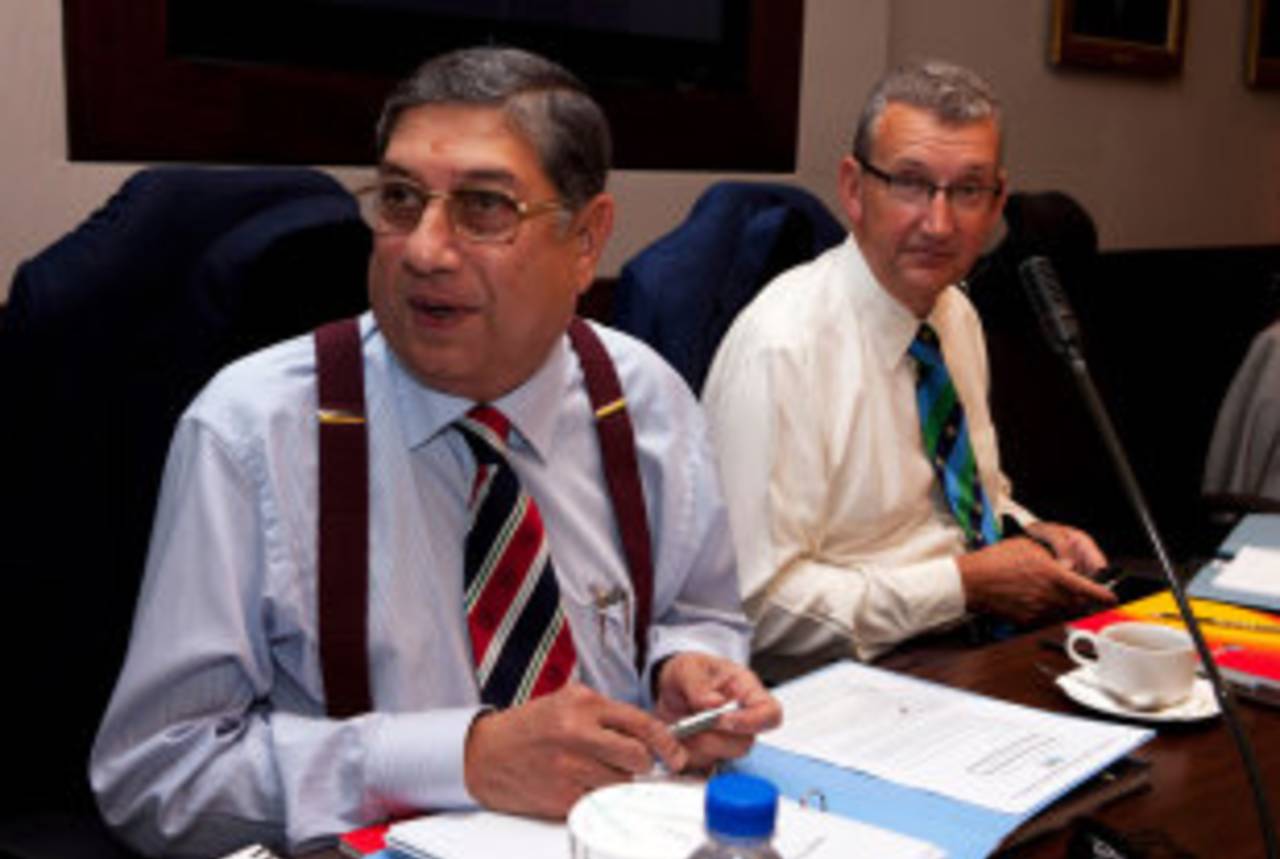BCCI discards presidential rotation system
The Indian board has done away with the zonal rotation system for electing its president, and also allowed its office bearers longer terms
ESPNcricinfo staff
15-Sep-2012

N Srinivasan has formally suggested doing away with the zonal system for electing presidents at last month's working committee meeting • Getty Images
The Indian board has approved significant changes in the election and tenure of its president and office-bearers that could influence who gets to run cricket's most powerful national board. The decisions, which included a tweak to the zonal rotation system for electing the president, were made during a special general meeting in Chennai on Saturday.
The change to the election process of the president was originally mooted, as an informal suggestion to the board, last year by former BCCI president Shashank Manohar. It was formally put forward for discussion at the working committee meeting last month by Manohar's successor, current BCCI president N Srinivasan.
The current rule stipulates that any nominee for the president's post should have attended at least two AGMs as a representative from the zone that nominates him. This rule has been relaxed: while the nomination remains with each zone on a rotational basis, the nominee need not be from that zone. So East Zone, whose turn it is to nominate the next president when Srinivasan steps down in 2014, could propose a candidate from any other zone if two out of the six state associations from East support that candidate.
The other change was to make all BCCI office-bearers eligible for a second three-year term; at present, only the five vice-presidents can stand for a second term.
BCCI officials have unofficially explained the changes as being meritocratic, picking and keeping the best people in the job rather than following a quota- and time-bound policy. It would also, officials have stressed, avoided a scenario where India has a weak representative at the ICC.
The immediate concern is the 2014 election, which would be the East Zone's turn for nomination. The zone is not perceived to have a suitable candidate for the post and the new rule would allow someone from outside the zone to take charge of the board. The current consensus candidate seems to be Arun Jaitley, the vice-president from North Zone who would otherwise have had to wait till his zone's turn in 2017.
However some officials have told ESPNcricinfo that it was not certain Jaitley would be the next president. "It could even be Manohar. He was the one who proposed it and now that the constitution for the office bearers has been changed, he could also be in fray."
And whoever wins the 2014 election could enjoy a six-year term.